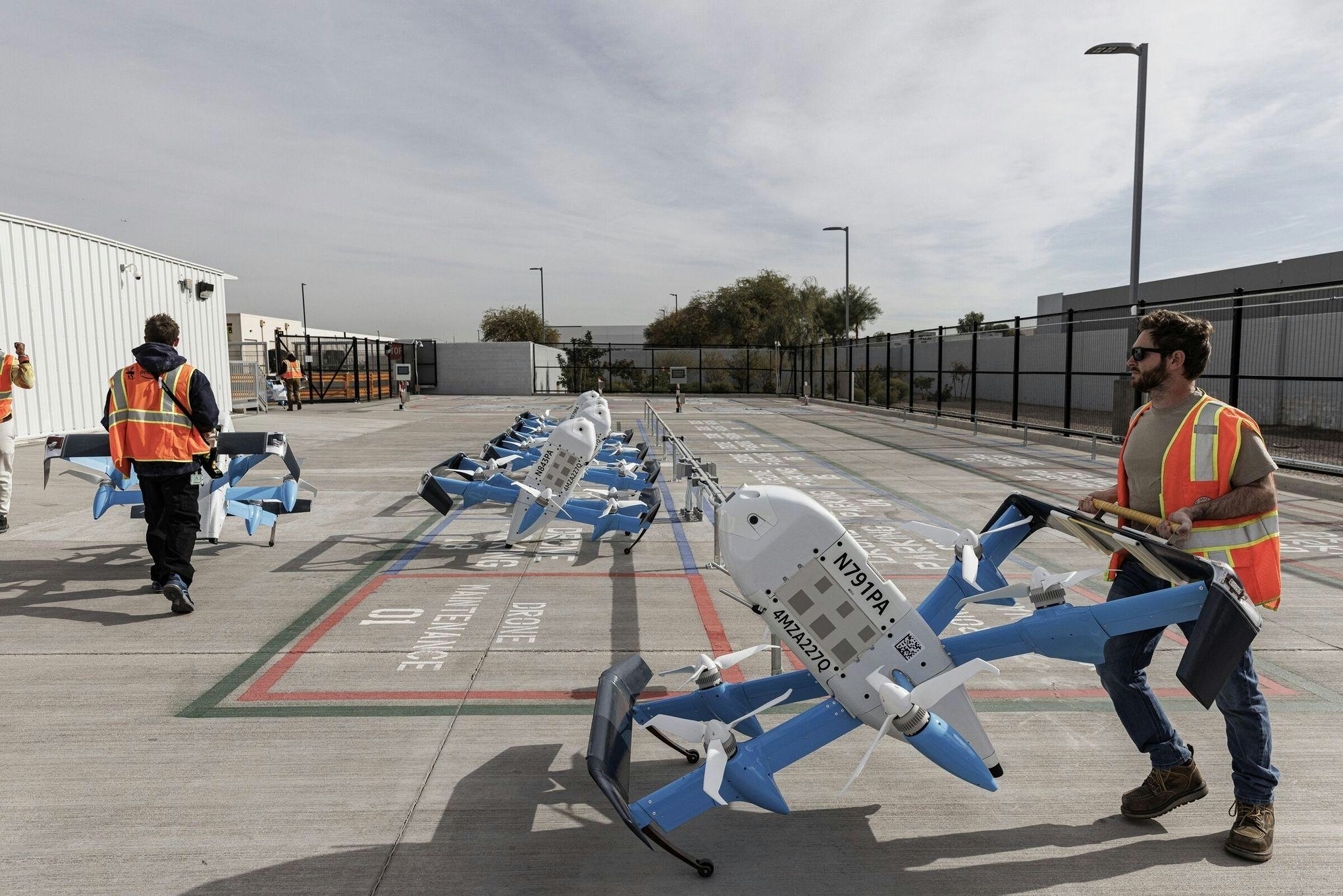AeroGenie — Il tuo copilota intelligente.
Tendenze
Categories
NTSB Declines to Investigate Amazon Drone Incident in Texas

NTSB Declines to Investigate Amazon Drone Incident in Texas
FAA Investigates After Amazon Drone Clips Internet Cable
The Federal Aviation Administration (FAA) is currently investigating an incident involving an Amazon Prime Air MK30 delivery drone in Waco, Texas, after the aircraft struck an overhead internet cable during liftoff. Despite the FAA’s involvement, the National Transportation Safety Board (NTSB) has decided not to open a formal investigation, classifying the event as a “non-action event,” according to an agency spokesperson.
The incident occurred at approximately 12:45 p.m. CST on November 18 and was captured on video obtained by CNBC. Following a backyard delivery, the MK30 drone collided with an internet cable but managed to execute what Amazon described as a “safe contingent landing.” Although the drone’s propellers sustained damage, there were no injuries or disruptions to internet service. Prime Air spokesperson Terrence Clark confirmed that Amazon self-reported the incident, covered the cost of the customer’s cable repair, and issued an apology.
Amazon’s Expanding Drone Operations and Safety Protocols
Amazon recently commenced commercial drone deliveries in Waco, marking an expansion of its Prime Air operations that began last November in Tolleson, Arizona, and College Station, Texas, after receiving FAA approval. The MK30, Amazon’s flagship delivery drone, is capable of carrying payloads up to five pounds at speeds reaching 73 miles per hour, with a service radius of 7.5 miles and a maximum altitude of 400 feet. The drone is engineered to perform a safe contingent landing by transitioning from forward to vertical flight and scanning for a clear landing area when confronted with unexpected obstacles, adverse weather, or system malfunctions. Following such events, a recovery team retrieves the drone for thorough inspection.
Regulatory Implications and Industry Concerns
While the FAA continues its investigation, the NTSB’s decision to abstain from involvement has sparked discussion regarding the regulatory framework governing commercial drone operations. This development comes amid increased scrutiny of Amazon’s drone safety record, particularly after two MK30 drones collided with a crane boom in Tolleson, Arizona, in October. Those collisions caused significant drone damage and battery fires, leading to a temporary suspension of operations in Arizona and an ongoing NTSB review.
The limited role of the NTSB in the Waco incident raises broader questions about oversight as drone deliveries become more prevalent. Industry experts emphasize the importance of regulatory clarity to safeguard public safety and maintain investor confidence. The incident may heighten market concerns about potential regulatory challenges and operational disruptions for Amazon, while competitors might leverage the situation to highlight their own safety and compliance measures.
This episode also occurs amid growing national security concerns related to drone activity. Army Secretary Dan Driscoll and Senator Tom Cotton have recently underscored escalating aerial security risks, emphasizing the necessity for stringent oversight as drones increasingly integrate into commercial and civilian airspace.
Amazon continues to enhance its drone safety systems by simulating failures and unexpected scenarios during testing. As commercial drone operations expand, regulators and industry leaders face mounting pressure to uphold safety standards, ensure compliance, and maintain public trust.

Capital A Completes Sale of Aviation Business to AirAsia X

Four Gateway Towns to Lake Clark National Park

PRM Assist Secures €500,000 in Funding

Should Travelers Pay More for Human Support When Plans Go Wrong?

InterGlobe Aviation Shares Rise 4.3% Following January Portfolio Rebalancing

Key Market Segments Shaping Airline Route Profitability Software

Locatory.com Gains Traction Among Aviation MROs and Suppliers

JetBlue Flight Makes Emergency Landing Following Engine Failure

58 Pilots Graduate from Ethiopian University

The Engine Behind Boeing’s Latest Widebody Aircraft
